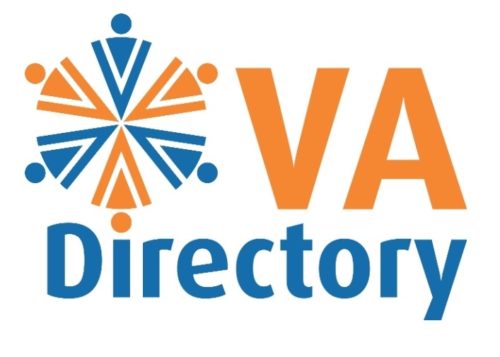I often get phone calls from prospective clients or emails from new VAs asking what the ‘standard rate’ is for carrying out particular jobs. I do understand their question but they haven’t really thought about what they’re asking.
When you’re buying a product such as a book, software or other things then there are often ‘recommended retail’ prices for that particular item. However, when it comes to providing services, it doesn’t work the same way. It’s not like you’re paying an employee that is receiving a ‘standard’ wage – we’re all self-employed and bring with us a very wide range of differing experiences, skills and backgrounds. But it’s not only that.
Consider if the Virtual Assistant industry decided to collaborate and set a ‘standard rate’ for different services. How would that work (apart from being accused of price fixing)?
I don’t believe it could. And this is why:
- VAs the world over all have different skill levels and capabilities.
- Some are excellent typists, some are very good at transcription, some have excellent artistic skills so do well at desktop publishing, graphic design and so on. The ‘unskilled’ could not charge the same as the ‘skilled’.
- VAs live in many different countries and regions.
- It’s not just the currency differences but also the costs of living. From state to state in different countries the cost of living goes up and down. VAs could not charge the same rate even across the same country.
- Not all VAs provide the same services.
- There are different tax laws in each country.
- Some VAs only work part-time and others full-time and this can affect their rates.
- Some come with over 20 years experience in their field, and others only 5.
- Many VAs go it alone and don’t belong to VA networks or associations so how would it be policed?
I’m sure there is more we can add to this list but I’m sure you’ll agree that setting a standard rate is just not possible. When a client contacts me I tell them I’ll send out their request to my team so they’ll get several responses with quotes and turnaround time. That way they don’t have to shop around – they’ve only had to make one call and they get choices. I do sometimes remind them that ‘cheapest’ isn’t always best. For example if someone only types 40wpm and charges a low rate, then it’s going to take longer before the client gets the completed work back than from someone who types twice the speed and finishes in half the time. They might charge a higher per hour rate but in the end the job is often cheaper. It’s worth doing the math.
Virtual Assistants, standard rate, prospective client, new VA

Michelle Mangen says
Thanks for the wonderful article…as always you are very concise and to the point!
I posted this on Twitter and with that I hope it sheds light for people looking to hire someone!
Michelle Mangen
Owner, Your Virtual Assistant
Neenah, WI
http://www.TheVirtualAsst.com
Karen Braschuk says
Kathie,
Well said. I have to agree.
The term “virtual assistant” in itself is vague in nature and doesn’t always truly capture the essence of the variety of services that independent contractors are providing in terms of their virtual services. Nor does it really pinpoint to the buyer, whether they are looking for a secretary or a web designer, if there is any difference between a “virtual assistant” or a “freelancer” who happens to offer their services via the web.
I regularly receive requests to rent my office space, for example. That also shows how terms like “virtual assistant” and “virtual office” can get mixed up.
There are web designers, graphic designers, ghostwriters, copywriters, proofreaders, marketing professionals, etc. who could also be termed as “virtual assistants” in the broadest sense of the term. Basically, anyone who is a freelancer offering their services virtually could also be termed as a virtual assistant.
Because of this, the “virtual assistant” industry has become as common as the brick-and-mortar “office worker” industry in many cases. What is an office worker? Someone who types your letters, transcribes your teleseminars, maintains your calendar and books your appointments, revamps your website, answers your telephone, responds to your emails, makes your collection calls, performs your telemarketing, administers your online shopping cart, does your accounting/bookkeeping, etc.? Yes, all of the above and then some. There is no limit to the variety of services that can now be performed virtually.
I’m thinking that the term “virtual assistant” will need to be further refined to add “specializing in…” simply because of the vast array of choices (and pricing options) that are now available for each of these services to the buyer.
The VA industry is changing very rapidly, and as it is service-based, it will continue to change as the market demand fluctuates.
Wow, and I thought we were unique at one time…but no longer.
Karen Braschuk
Office Support 911
Michael says
Where does one start if they are looking to get some work as a VA? I feel that I could be an excellent VA for the right company.
Kathie Thomas says
Your question, Michael, reads like you’re looking for employment. VAs are individual self-employed business owners supporting many businesses or companies – not just one. Why not read more at this blog about setting up and owning a VA business and what’s involved?
Kathie Thomas says
Thank you Michelle, much appreciated! Please share your Twitter address so I can follow you!
Nikki Romero says
Hi Kathie, actually, it is possible to work as a VA for a company, and be employed there. I used to work for one as a VPA and was a regular home-based employee there (not a contractor or a business owner).
Staffing says
This advice is really going to help, thanks.